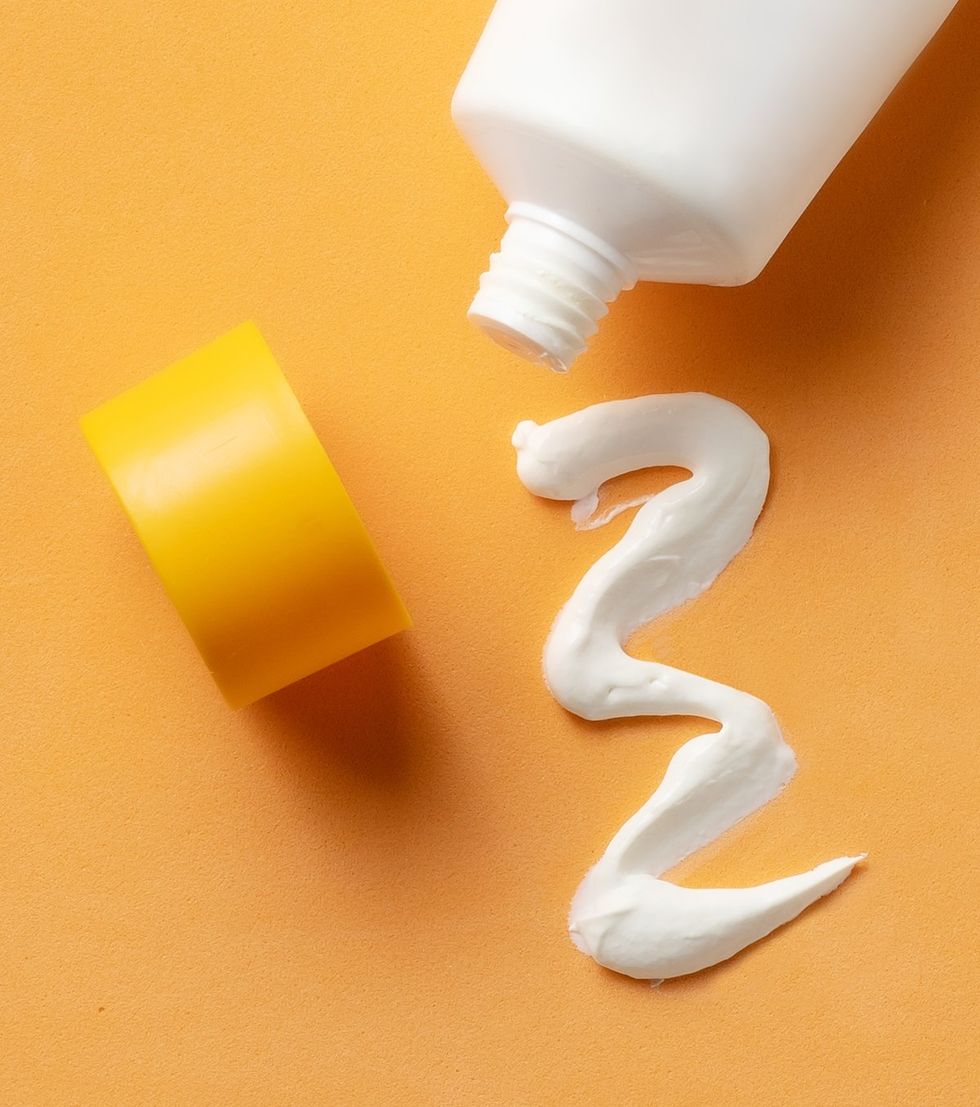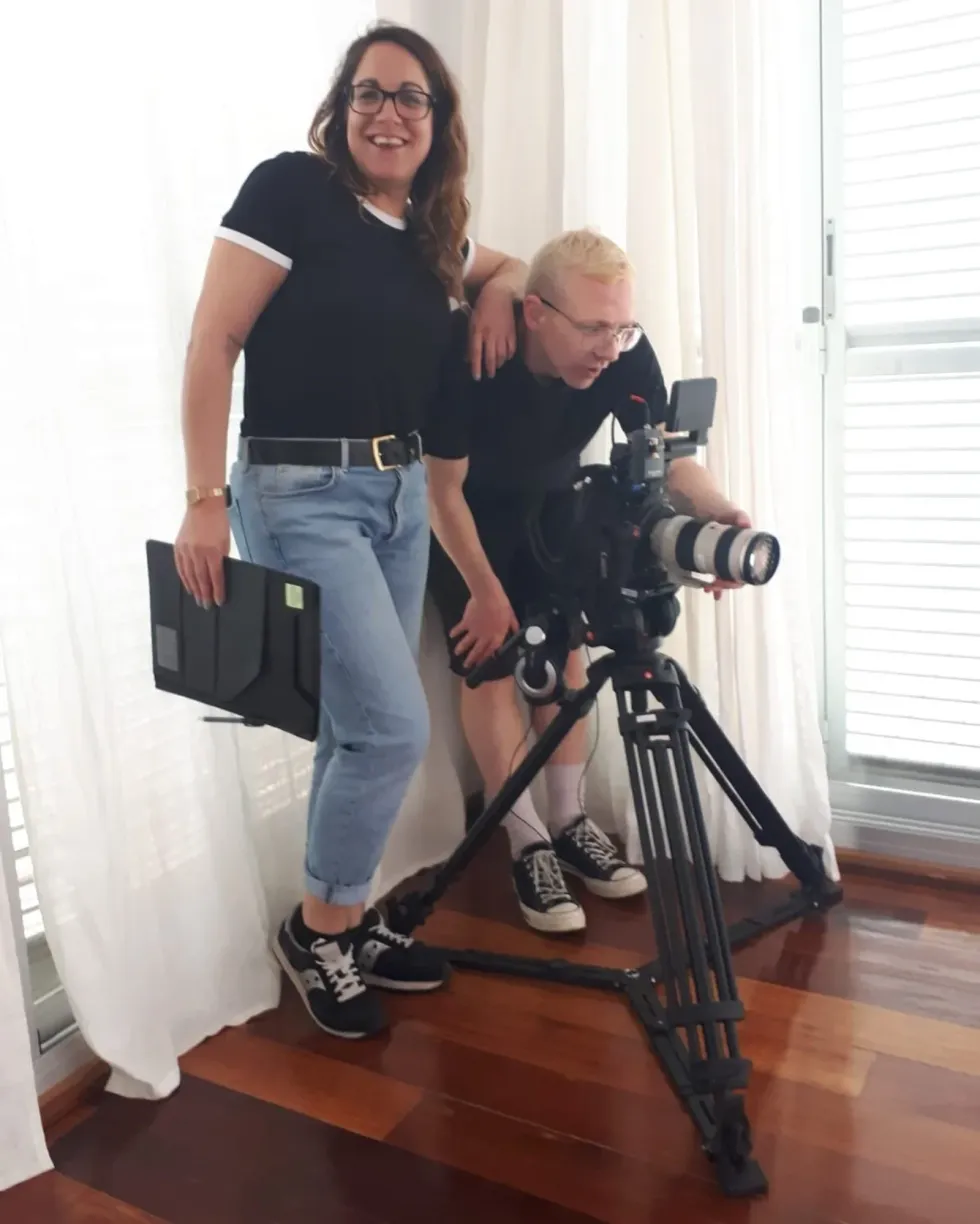When it comes to anal sex, there’s no surprise to anybody that it has its share of challenges. It takes a long time to prepare, it hurts (until it feels good), and it can get wildly messy if you’re unprepared.
Oh, and there’s also those pesky things called fissures.
The discussion around anal health is still a bit taboo, but with things like the Butt Honestly podcast by Dr. Carlton Thomas and the Butt Seriously book by Dr. Evan Goldstein, the founder of Future Method, we’re getting answers to some of the questions we were too afraid to ask.
EXPAND
A recent question revolves around anal fistulas, which Jonathan van Ness openly discussed with Dr. Goldstein in a recent episode of his podcast, Getting Curious. We love that JVN is always so open about things we're otherwise too afraid to talk about on our own, and we're grateful he asks the hard questions for us.
We had a chance to catch up with Dr. Goldstein ourselves via e-mail to discuss the topic in more detail about what it is, how it’s cured, and how to know if you have one. Keep reading for his best tips.
What is a fistula and how does it differ from a fissure?

New Africa/Shutterstock
Dr. Goldstein explains anal fissures are anal tears like a papercut that occur from increased pressure in the anal region, such as straining to go to the bathroom or during anal play.
“They are literally a pain in the ass and are classified as either acute or chronic,” he says. “Most fissures are acute and heal by simple, at-home methods like applying topical creams and suppositories, taking stool softeners to make sure your stool is soft and easy, and taking warm Epsom baths. Other people need more formalized creams and potentially anal Botox, which is administered in the office.”
If the fissure is chronic, surgery and “other approaches” are required to remove the scar.

Fistulas, on the other hand, stem from anal glands located 3-5 cm inside your butt and form a seam that creates lubrication in the form of mucus. These secretions help from tearing the seam to create a fissure.
“However, these anal glands can be finicky and get clogged by anything from poop to lube to the liquid solutions we use from douching,” Dr. Goldstein warns.
Instead of the glands stopping the secretions before they become afflicted, the fluid finds its way out another way, usually through a painful abscess that looks like a red and irritated pimple.
“Sometimes, they can become huge – so big that many people think it’s hemorrhoid at first, but then it worsens and either drains itself on the outside of your hole to the cheek area. Or, you can see a specialist who can make an incision that drains the fluid. Once it’s drained, you feel so much better.”
After the abscess is drained, half the time, it develops into a fistula, which is a “tunnel that develops from that gland (the internal opening) to the external – now open – abscess drainage location.”
How do I know if I have a fistula?

ViDI Studio/Shutterstock
Since most people confuse fistulas for hemorrhoids, many people don’t know that they have one. In that case, Dr. Goldstein says, “It doesn’t get better, and it’s super painful.”
When the abscess drains in some capacity, it can develop into a fistula. However, “If someone doesn’t have such a severe abscess, they may just have a pimple-like opening on the outside of their hole, or they’ll have mucus drainage that they can see coming from an external opening. It’s not pretty.”
How can I treat this on my own, or when should I see a doctor?

Black Dingo
Before you freak out, know that the abscess can often be treated with antibiotics and warm soaks in the hopes it self-drains and relieves you.
That said, if things worsen over the next few days, it’s important to make a return visit a medical provider who knows what they’re doing. The tests done in early intervention first assess to make sure it's not an STI, and then move to drain the abscess correctly.
However if it has turned into a fistula, you’ll need surgery to correct the issue. Even if you have a fistula, though, it isn’t the end of the world.
“People can definitely live with fistulas,” says Dr. Goldstein, “but they’re not the prettiest if we want our asses eaten and played with, not to mention the fact it could leak mucus. It’s best to have it formally resolved.”
What does the overall treatment look like?

Pop Paul-Catalin/Shutterstock
It’s important to understand that fistulas can be either simple or complex, and its location and proximity to the anal muscle important is an important factor.
“Simple fistulas are literally a tube connecting inside to out, and surgically, I’ll just open up that tube,” Dr. Goldstein explains. “It’s called a simple fistulotomy. You don’t close or suture it. You leave it open and the scar/wound heals from inside out and boom – you’re done. It takes 6-8 weeks for full recovery, but it’s quite an easy approach.”
On the other hand, complex fistulas go through muscle and come with a lot more considerations to find out how much muscle and where it is in the anal region.
“I like this procedure called a LIFT procedure,” says Dr. Goldstein. “It stands for ligation of the internal fistula tract. You basically tie off the tunnel connection and close the internal opening. I always remove that long tunnel, especially for people who bottom, as it still can produce fluid and also look abnormal. There are other options, like what’s called an advancement flap, but they can be tricky to heal correctly.”
How do I avoid getting fistulas?

Denis Kendialov/Shutterstock
Unfortunately, fistulas are a luck-of-the-draw type of deal, especially since the anal mechanism is designed as an exit instead of an entrance. Douching or over-douching with improper solutions like water, enemas, and shower hoses can mess things up — a primary decider in Dr. Goldstein starting Future Method’s body-safe anal douche powder.
“I always tell people the use a ‘less is more’ approach, even to the point of no douching at all,” he says, noting that a higher fiber diet will help you “set the stage for little to no douching preparation before sex.”
The key, he says, is to find a diet that works for you and nourish your gut health first and foremost.
How do I soothe the symptoms?

LightField Studios/Shutterstock
Once you get the anal abscess drained, Dr. Goldstein says the release in pressure will feel “so amazing,” but there aren’t many other symptoms for fistulas outside of local drainage.
Dr. Goldstein also warns that many people have gland irritation that sometimes develops subacute infections or irritations. “But people feel it during sex or have mild swelling that self-resolves. They can actually pinpoint an area inside their ass that hurts. These glands get irritated from douching, lube, and bottoming. And they look like normal glands but become a hindrance to sex. When caught early, the surgical approach is easy enough and such a game changer, especially if you have a sex-positive surgeon who knows what they are doing.”
We can all agree that anal fistulas are complicated and can really suck, but are also treatable so won’t take long before you’re back in the saddle. The prevention approach is key to avoiding them, but education is your best bet at safe anal play.





























































































 Adult stars Tony Genius, Jordan Starr, and Dom King.Mile High Entertainment / Carlos Salazar / Men.com
Adult stars Tony Genius, Jordan Starr, and Dom King.Mile High Entertainment / Carlos Salazar / Men.com


